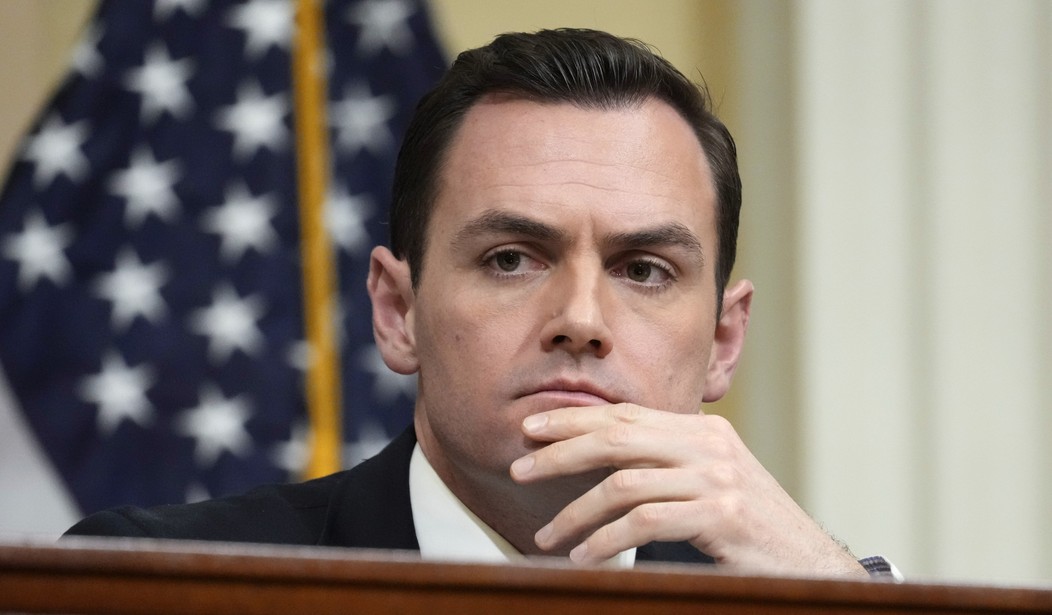Republican Rep. Mike Gallagher announced last month that he would be retiring from congress in mid-April. But until then, he's a co-sponsor of the TikTok bill which just passed in the House. Today the NY Times published an interview with Gallagher in which he makes the case for passing the bill.
Representative Mike Gallagher: There are two threats. One is what you could call the espionage threat. It’s data security — using the app to find Americans, exfiltrate data, track the location of journalists, etc. We have incidences of this happening already that are in the public domain. That’s a serious threat, but I actually think the greater concern is the propaganda threat. If TikTok continues to establish itself as the dominant news platform in America, and if the algorithm remains a black box and subject to the control of ByteDance and by extension the Chinese Communist Party, you’re placing the control of information — like what information America’s youth gets — in the hands of America’s foremost adversary. And that’s a risk I don’t think we can afford to take. Obviously, there’s well-established precedent when it comes to traditional media for foreign ownership, which is why we think a divestiture is the most prudent way to guard against both of those threats...
I do think when we’re talking about all this stuff — social media companies in America and China — a principle underlying all of it has to be reciprocity. As we have this debate about how and whether to regulate a foreign adversary-controlled social media application in the United States, it’s worth remembering that our social media applications are not allowed in China. There’s just a basic lack of reciprocity and your Chinese citizens don’t have access to them. And yet we allow Chinese government officials to go all over YouTube, Facebook and X spreading lies about America. I think this is a microcosm with a broader lack of reciprocity in the entire U.S.-China relationship. And I do think as a matter of principle, it puts us on firm ground to address this issue.
A bit later, interview Jane Coaston asked Gallagher about Jonathan Haidt's take on social media and its impact on teens also played into the current desire to control TikTok. Gallagher said he found Haidt's research convincing but it was a distinct issue.
Gallagher: Well, I think I need to caveat this: I share the concerns, but it’s a separate issue than what this bill is trying to address. What I’m narrowly trying to address with this bill is foreign adversary control of a dominant social media platform and news platform in the United States. Now, once we address that issue, then we can have a bigger debate about the effect of social media more broadly to include American social media companies. I’ve been persuaded by Jonathan Haidt’s work, both in the previous book he wrote with Greg Lukianoff, “The Coddling of the American Mind,” and then Haidt’s book that just came out, “The Anxious Generation,” that it is strongly correlated with the skyrocketing rate of anxiety and depression that we’re seeing among Gen Z. I think it’s worthy of government attention.
Asked if this was at odds with the conservative view that government should stay out of things as much as possible, Gallagher suggested that national security threats were one area where there was general agreement about the role of the federal government.
Gallagher: There’s a clear precedent of the government protecting Americans from national security threats posed by foreign-adversary-controlled applications and preventing our foreign adversaries from influencing the American airwaves. For a century, the Federal Communications Commission has blocked concentrated foreign ownership of radio and television assets on national security grounds, and in 2020, CFIUS (the Committee on Foreign Investment in the United States) forced a divestment of the app Grindr, citing national security concerns stemming from its Chinese ownership.
The top comment made a pretty good point about the tone of the interview. The whole thing was sort of framed as 'Why are conservatives doing this?' But the actual vote shows this bill had broad bipartisan support.
The headline and overall line of questioning feels out of sync with what was an overwhelmingly bipartisan vote in the House — 352 to 65! This is not a partisan, Conservative issue nor is it a free speech issue.
There are real and valid concerns about the CCP’s control of TikTok — anyone who follows the company knows this. Forcing a sale is the right thing to do.
While millions of teenagers may not like it, it’s the role of parents to parent our children and set healthy boundaries and expectations. Not all things are good for you. Some things are even bad for you.
I for one sincerely hope it passes in the Senate.
Several other people agreed.
This was one of the more bipartisan house bills I've seen, how is this being presented as a conservative agenda item?
It's in the hands of Senate Democrats now. We'll have to wait and see just how bipartisan they are willing to be about the bill.








Join the conversation as a VIP Member